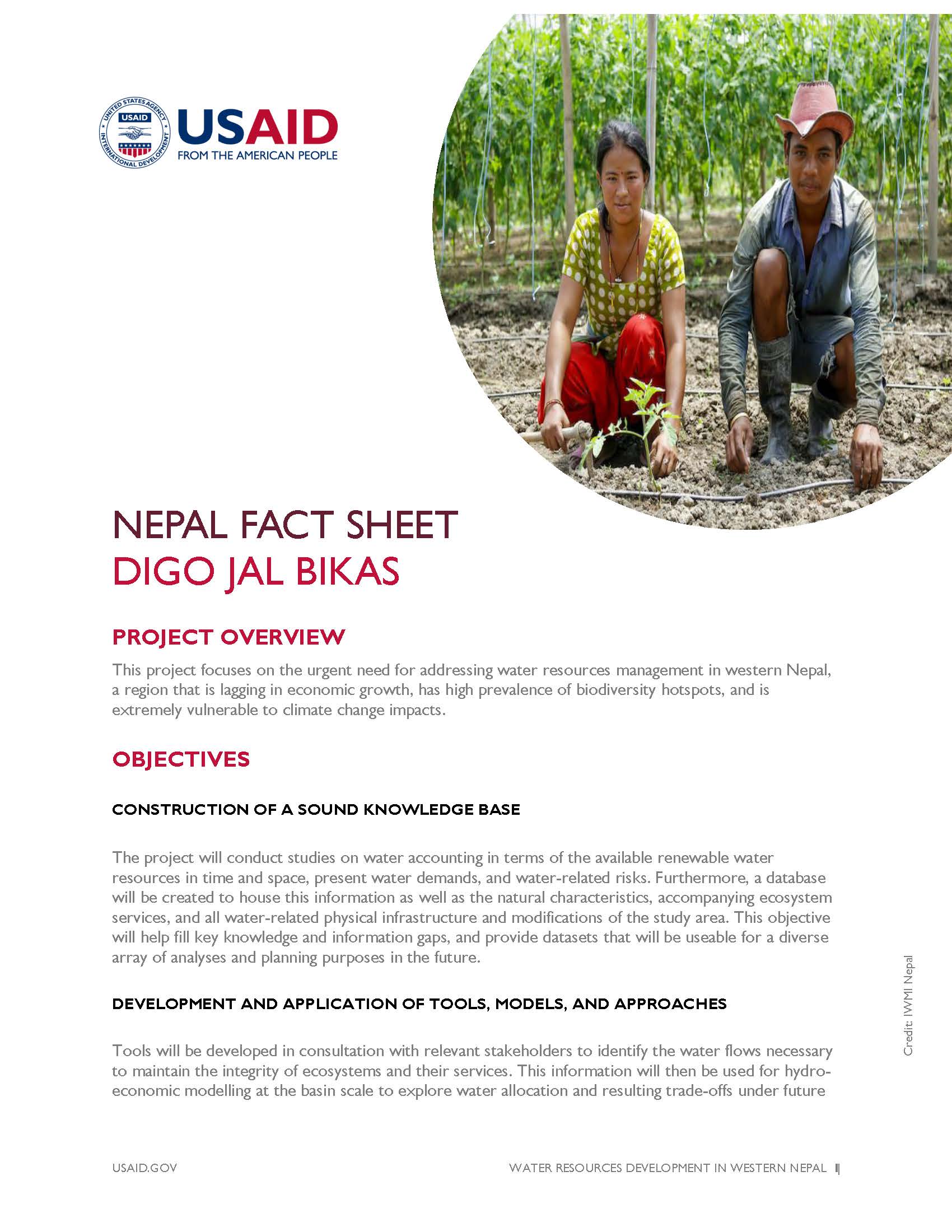Speeches Shim
PROJECT OVERVIEW
This project focuses on the urgent need for addressing water resources management in western Nepal, a region that is lagging in economic growth, has high prevalence of biodiversity hotspots, and is extremely vulnerable to climate change impacts.
OBJECTIVES
FACT SHEET - DIGO JAL BIKAS ![]() (pdf - 218k)
(pdf - 218k)
CONSTRUCTION OF A SOUND KNOWLEDGE BASE
The project will conduct studies on water accounting in terms of the available renewable water resources in time and space, present water demands, and water-related risks. Furthermore, a database will be created to house this information as well as the natural characteristics, accompanying ecosystem services, and all water-related physical infrastructure and modifications of the study area. This objective will help fill key knowledge and information gaps, and provide datasets that will be useable for a diverse array of analyses and planning purposes in the future.
DEVELOPMENT AND APPLICATION OF TOOLS, MODELS, AND APPROACHES
Tools will be developed in consultation with relevant stakeholders to identify the water flows necessary to maintain the integrity of ecosystems and their services. This information will then be used for hydro-economic modelling at the basin scale to explore water allocation and resulting trade-offs under future development and climate change scenarios. At the sub-basin scale, innovative water management interventions and stakeholder dialogues will be initiated. Pilot projects will be explored at the community level to better manage water and governance issues that are inclusive and sustainable.
CREATION OF INTEGRATED POLICY AND MANAGEMENT GUIDELINES
Guidelines will be designed to promote best practices in water-related infrastructure development (e.g., hydropower, irrigation, managed aquifer recharge, and water storage) at different scales, supporting local communities, and protecting ecosystem resilience. The above mentioned knowledge base, tools, models and approaches will be integrated into these guidelines, which will be developed with input from the government and community stakeholders as well as donors and investors. During the overall project period, researchers will ensure that gender issues are adequately considered and that the research activities, dialogues and policy recommendations support a transformative approach to gender in the region.
METHODS AND OUTCOMES
These objectives will be achieved through six core work packages:
- Basin characterization
- Environmental flow assessment
- Basin-scale development scenarios
- Watershed/village water management and governance
- Gender and Social Inclusion
- Integrated policy and practice guidelines
Through the implementation of these work packages, four main outcomes are targeted:
- Formation and utilization of a basin-wide ecosystem and environmental flows database, which informs water resource planning and decision-making.
- A full and transparent exploration of environmental, social, and economic trade-offs resulting from different water resource development pathways.
- Adaption of practical technologies and land/water management approaches by local communities, increasing adaptive capacities to future climatic shock.
- Increased knowledge among government and development partners on how to create just, economical, and environmentally sustainable and resilient policies and infrastructure.


Comment
Make a general inquiry or suggest an improvement.